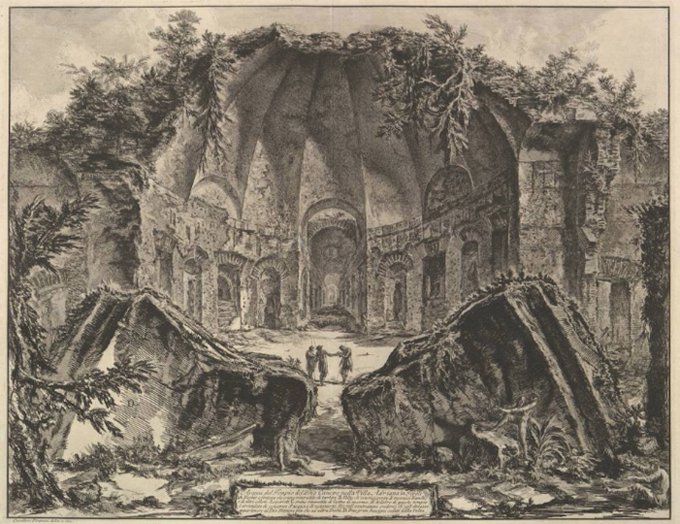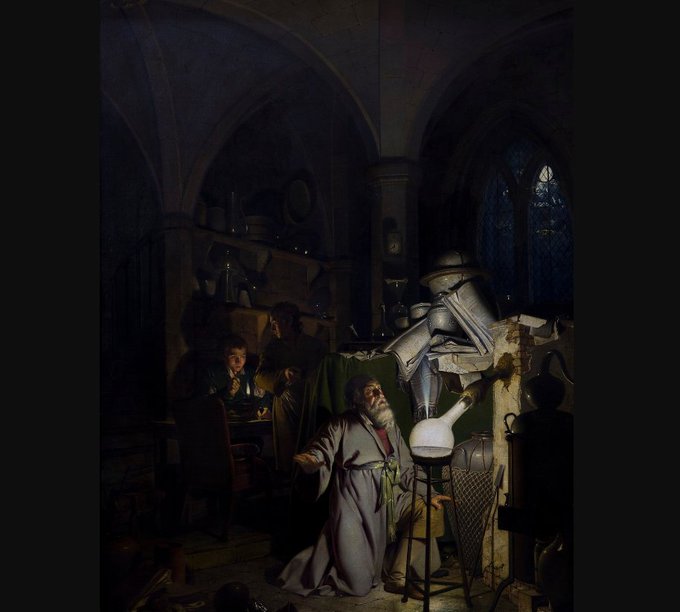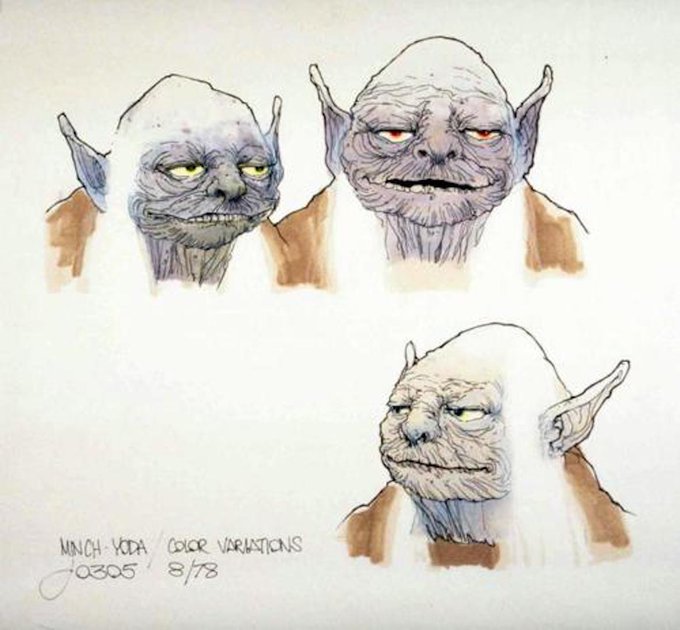Sublime illustrations for The Little Mermaid by Gabriel Pacheco. From an Edition of the tale by Hans Christian Anderson, 2009.
A first flop. 7 years before Piranesi's astounding Imaginary Prisons (1750) were published, he created an equally amazing book of 12 prints of "imaginary buildings & ancient ruins". The "Prima Parte di Architetture e Prospettive" did not sell but Piranesi was undeterred.
@XM_Chevalier_MX Yes, some of the most extraordinary architecture ever imagined.
Original Lord Of The Rings Concept Art by the legendary artist John Howe. Howe is a Canadian illustrator, living in Switzerland. Howe & noted Tolkien artist Alan Lee were chief concept designers for Peter Jackson’s LOTR movie trilogy & had a huge impact on the trilogy's look.
The Underwater Army of Da Vinci. 300 years ahead of its time Leonardo invented the world's first diving suit. Made of bamboo pipes, sheepskin & a bell air-trap, it was intended to create an army of divers who would "march along the Venetian seabed to thwart any invasions by sea"
The Philosopher's Stone is a legendary alchemical substance capable of turning base metals such as mercury into gold or silver. It was also believed to have the ability to heal illness & prolong the life of anyone who consumed a small part of it. Art: Joseph Wright of Derby, 1771
The Landscapes of the Guru. Karl Wilhelm Diefenbach (1851-1913) was a German symbolist painter & pioneer of the naturist & peace movement. He created a commune based on "life in harmony with nature and rejection of monogamy". It went bankrupt in 2 years. He retired to paint alone
From Disney to obscurity. The original Concept Art for Disney's Fantasia by Kay Neilson (1886-1957) for the famous "Night on Bald Mountain" segment. Neilson worked for Disney for only 4 years but influenced the style of many classics - his final years were spent in poverty.
Stolen Masterpiece predicted in a Hitchcock show! The story of a 1964 episode of The Alfred Hitchcock Hour called "Ten Minutes from Now" involved the theft of Vermeer's "The Concert". 26 years later it was stolen for real
with 12 other artworks by robbers disguised as police.
YODA was originally a garden GNOME. Hard to believe but The Star Wars: Empire Strikes Back Sketchbook (1980), shows concept art by Joe Johnston & assistant Nilo Rodis-Jamero in which Yoda was conceived as a Tolkien-esque gnome - only later becoming Elf-like in various colours.





































